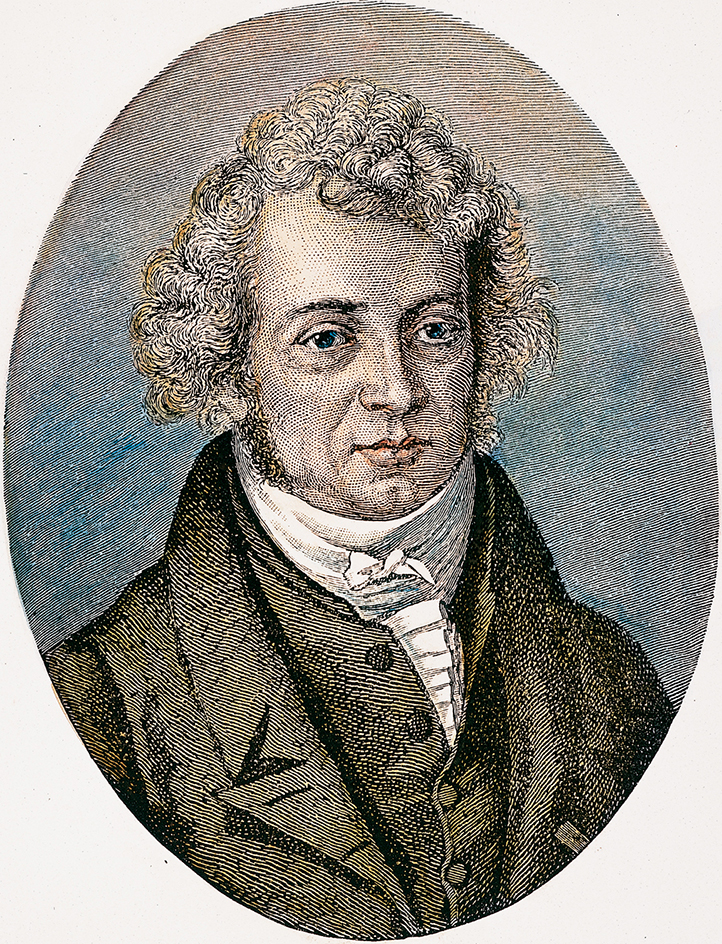Ampère, André-Marie, << ahn PAIR or AM peer, ahn DRAY mah REE >> (1775-1836), a French mathematician and physicist, discovered the laws of electromagnetism in the 1820’s. He showed that parallel electric currents attract each other if they move in the same direction, and repel if their directions are opposite. His mathematical theory describing these phenomena provided the foundation for the development of electrodynamics. He found that an electric current flowing through a coiled wire acts like a magnet. This led to the invention of the galvanometer, an instrument for detecting and measuring electric currents. Ampère used the galvanometer to show that an electric current completes a circuit through the battery which produces the current.

Born on Jan. 22, 1775, in Lyon, Ampère showed early promise as a mathematician. He taught at the École Polytechnique in Paris. His classic work Mathematical Theory of Electrodynamic Phenomena was published in 1827. He died on June 10, 1836.
